The trustees of the Boston Public Library voted Friday to shut down 4 of the city’s 26 local branch libraries. The meeting at the BPL’s main branch in Copley Square was attended by hundreds of Boston residents who expressed their anger over the closures and the effect they will have on their neighborhoods.
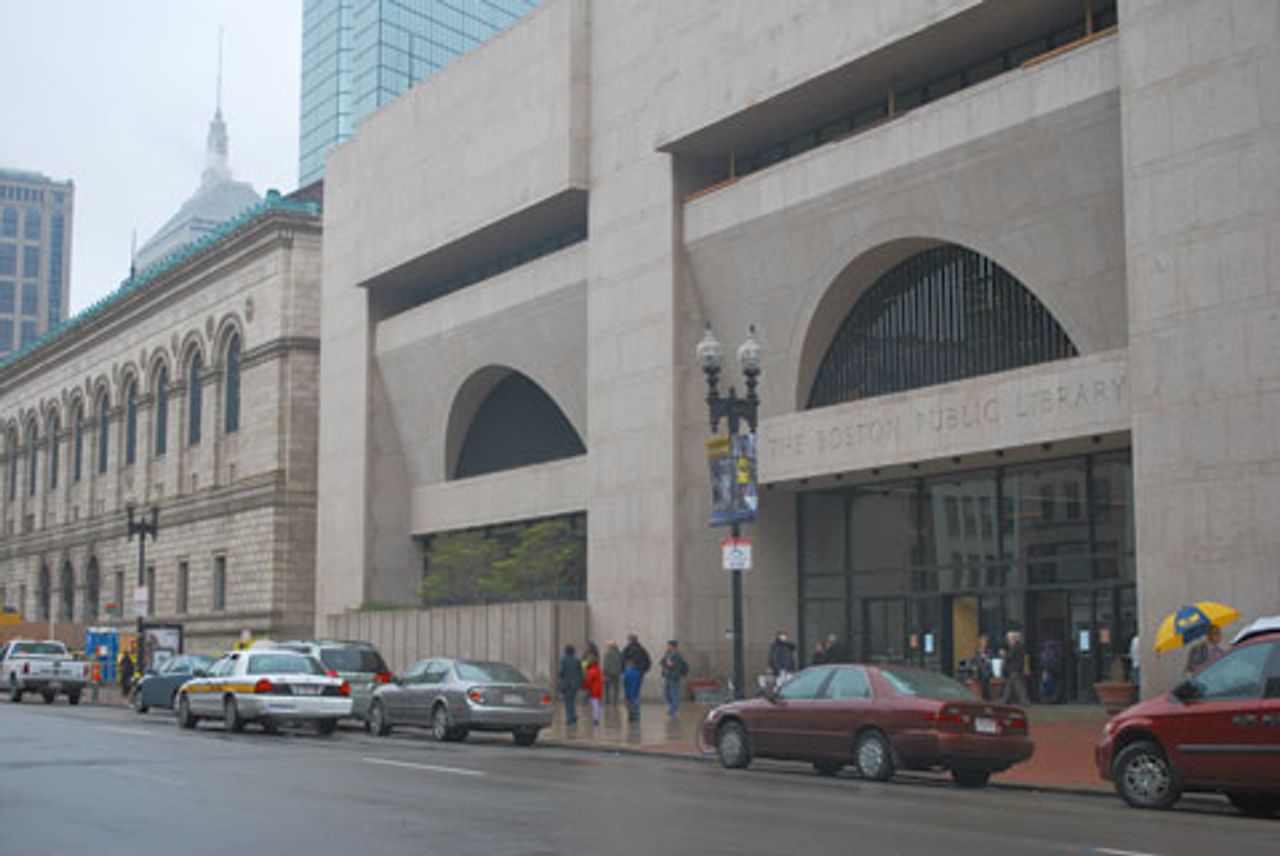 Boston Public Library main branch in Copley Square—one inscription reads: “The Commonwealth Requires the Education of the People as the Safeguard of Order and Liberty”
Boston Public Library main branch in Copley Square—one inscription reads: “The Commonwealth Requires the Education of the People as the Safeguard of Order and Liberty”To be closed, effective as soon as October 1, are the Faneuil branch in Brighton’s Oak Square, along with Lower Mills in Dorchester, Orient Heights in East Boston, and Washington Village in South Boston’s Old Colony Housing Development. Twenty-three to 25 jobs will be eliminated through the branch closures.
The budget-cutting plan passed by a vote of 5 to 0, with 1 abstention. The trustees also approved cutting up to 69 jobs at the main library in Copley Square and BPL’s administrative offices. The library currently employs 480 workers systemwide.
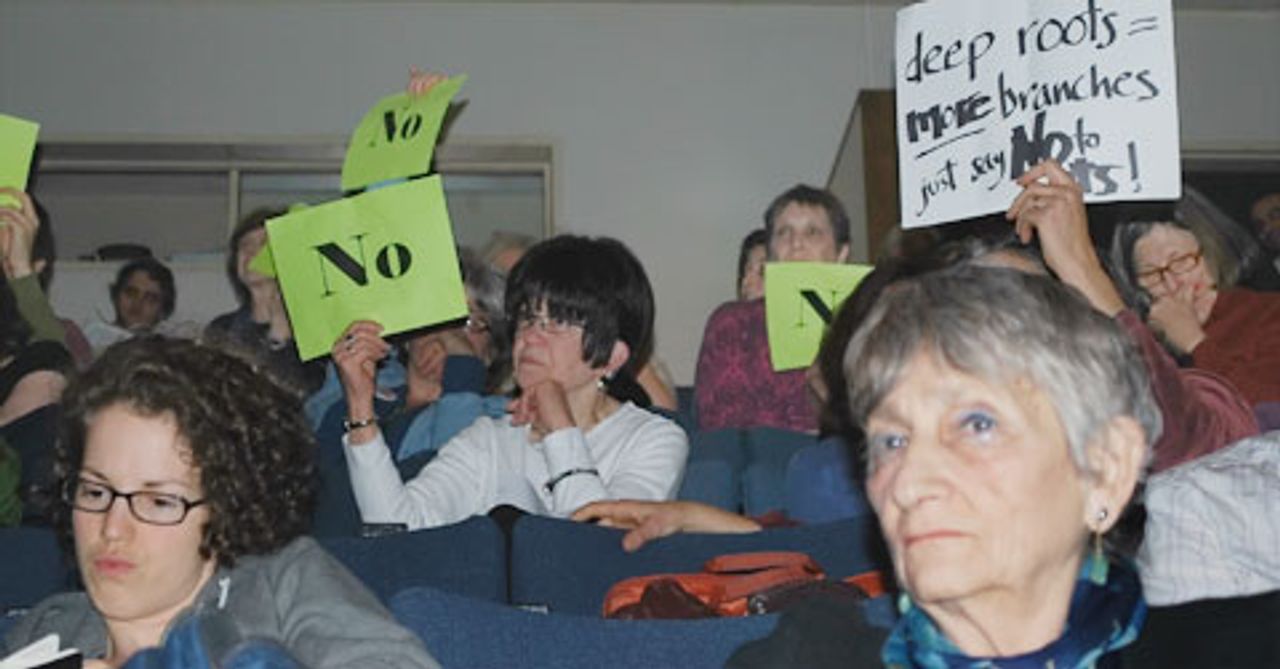 A section of the audience holding up signs opposing the branch closures
A section of the audience holding up signs opposing the branch closuresThe trustees’ action was taken in response to a $3.3 million budget shortfall for the library system. The BPL budget proposal will now be sent to Mayor Thomas Menino who will present the entire Boston budget to the City Council on Wednesday.
The vote came following a two-month deliberation process, including a series of public meetings at the branches, a time period that many library supporters decried as too short for an outcome with such devastating consequences. Residents felt that, despite the call for “public input,” the trustees had already made their decision to push through the closures.
The plan to cut four branches was one of three budget-cutting scenarios up for a vote by the BPL trustees. Another would have kept all 26 branches open but would drastically reduce hours at 18 of them, which might only be kept open two or three days a week. Another plan would have closed seven branches, adding the Egleston Square, Jamaica Plain and Uphams Corner branches to the list of shuttered facilities.
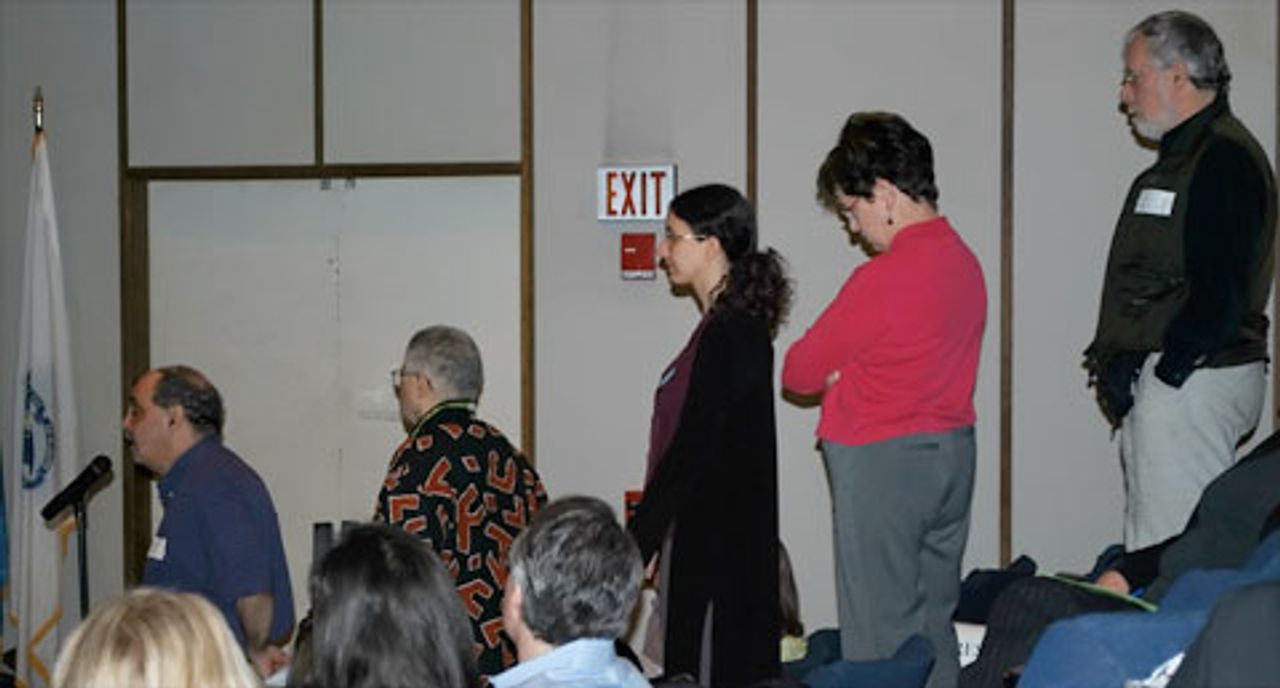 People line up to speak at Friday’s meeting
People line up to speak at Friday’s meetingBostonians and Massachusetts residents statewide have long taken pride in the Boston Public Library system. Opened to the public in 1854, it was the first public library to let people borrow books and other materials, a revolutionary concept at the time.
It was the first library to establish a space specifically designated for children, opening the Children’s Room in 1895 offering more than 3,000 books. It was also the first library to introduce the art of formal storytelling.
The system also opened the first neighborhood branch library in the US, the East Boston branch, in 1870. Although this branch will remain open under the new budget plan, residents using the other branch in East Boston—Orient Heights—will have to walk 45 minutes or take public transportation (15 minutes under ideal conditions), a trip many are likely to forgo.
Many of those speaking at the Friday meeting described how the branch library in their neighborhood plays a key role in educating its residents, particularly young people, and provides a focal point where people, young and old, can gather for meetings, to study, access the Internet and socialize.
The library staff at the branches were universally praised for offering their aid in finding reference material, helping people fill out job applications or write resumes, and assisting those for whom English is a second language.
BPL President Amy Ryan has sought to present her budget-cutting proposal as a “transformation” plan for the future, where services previously provided by the branches slated for closure will be taken over by local schools, community centers and other venues.
But many of the city’s neighborhoods have seen community centers shut down or reduce their hours. Public schools have seen funding cuts, and 12 Boston schools have been identified as “underperforming.” Teachers and staff at six schools have been ordered to reapply for their jobs.
Now residents in some neighborhoods are being told that one of their most valuable resources—the public library—is being shut down and that other already overburdened and underfunded services should take up the slack.
John McGrath, from Fields Corner in Dorchester, said, “If you close one library you’re going to have to open a prison. Listen to the community; we need to extend this process. Don’t turn us into book burners.”
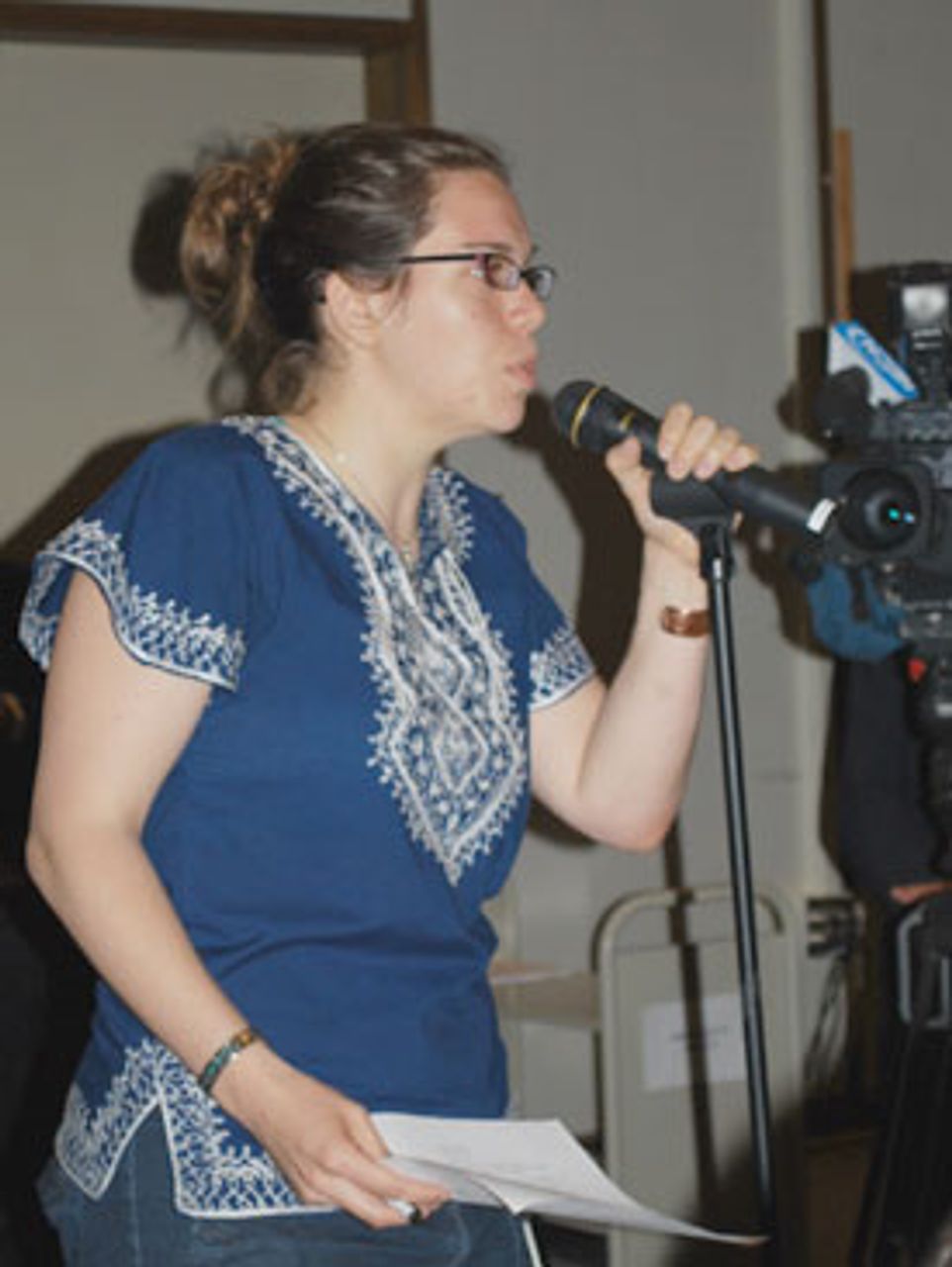 Katherine Jenkins Djom
Katherine Jenkins DjomKatherine Jenkins Djom, from Uphams Corner in Dorchester, spoke on the issue of the library budget, asking whether residents should accept it or “demand more.”
“We need to put books in the hands of youth, not guns,” she said. “We need to convey to our children the value of education. Until we are ready to knock down the gold dome on Beacon Hill [the State House] we’re not ready to close libraries.”
Josephine from East Boston, where the Orient Heights branch will close, said, “Children are not going to be able to go to that library. So you’re leaving East Boston defenseless.”
At Friday’s meeting, the trustees, particularly Chairman Jeffrey Rudman, lamented that their hands were tied and they were being forced to impose some sort of cutbacks. In fact, the $3.3 million budget gap for the libraries is a pittance compared to corporate tax breaks being offered at the state and local level.
At the end of March, the state Economic Assistance Coordinating Council approved more than $45 million in state and local tax breaks for Liberty Mutual Insurance Co., Coca-Cola Co. and about a half-dozen other companies that have promised to build or expand facilities in Massachusetts.
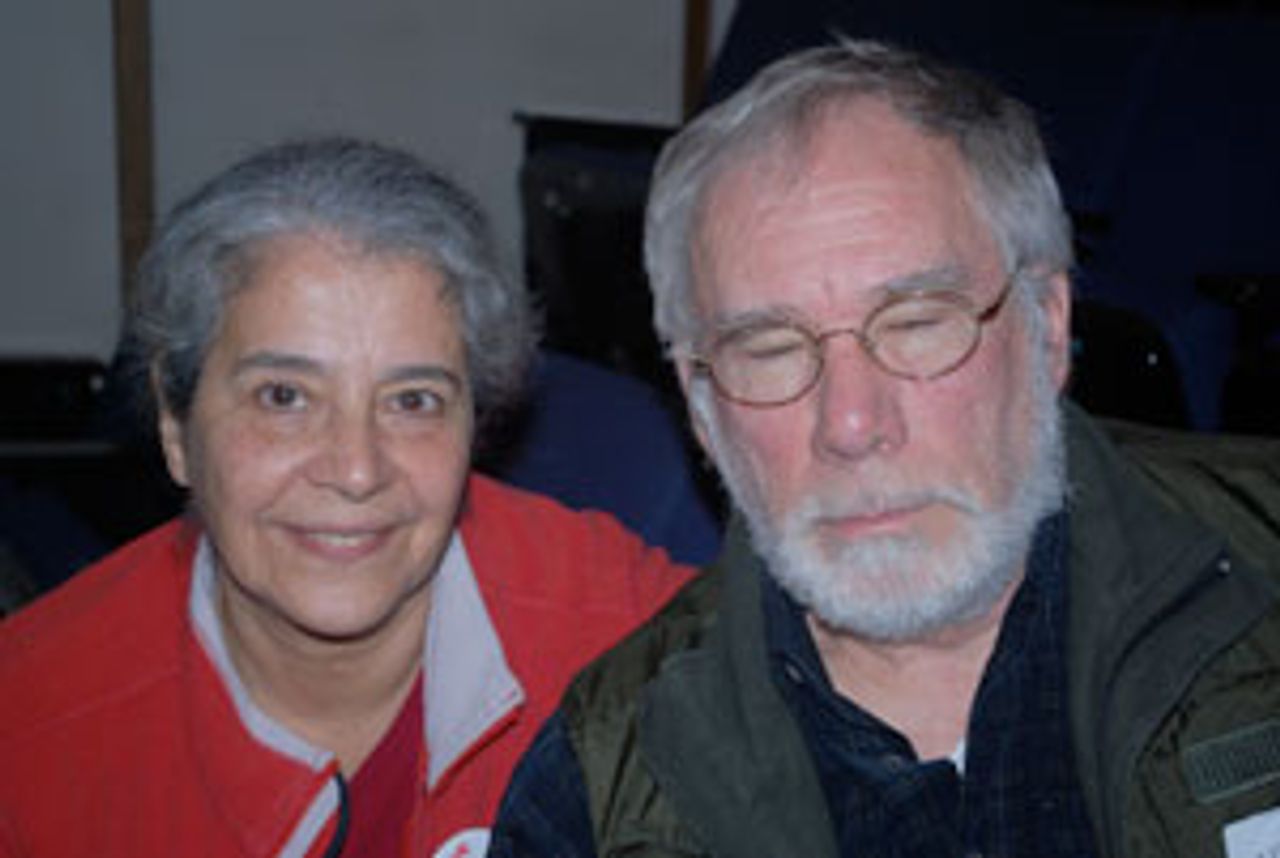 Luz Carrazola and Robert Bussewitz
Luz Carrazola and Robert BussewitzRobert Bussewitz and Luz Carrazola from Jamaica Plain spoke to the WSWS at Friday’s meeting. “Where is the will to object to this budget?” he asked, referring to the trustees. “They’re supposed to be defending the libraries. The libraries belong to the people and they’re only giving two months to discuss it. That’s not enough.”
“They say it takes a million dollars a year to have a soldier in Afghanistan or Iraq. What is the purpose of those soldiers? I say it’s a question of priorities. I know they supposedly have a legal obligation with the budget, but that’s not satisfactory. If it’s illegal for them to oppose it, well I say let them do it.”
At meetings held at various library branches and locations around the city leading up to Friday’s vote, many people spoke about the impact the Boston Public Library has had on their families’ lives and their communities.
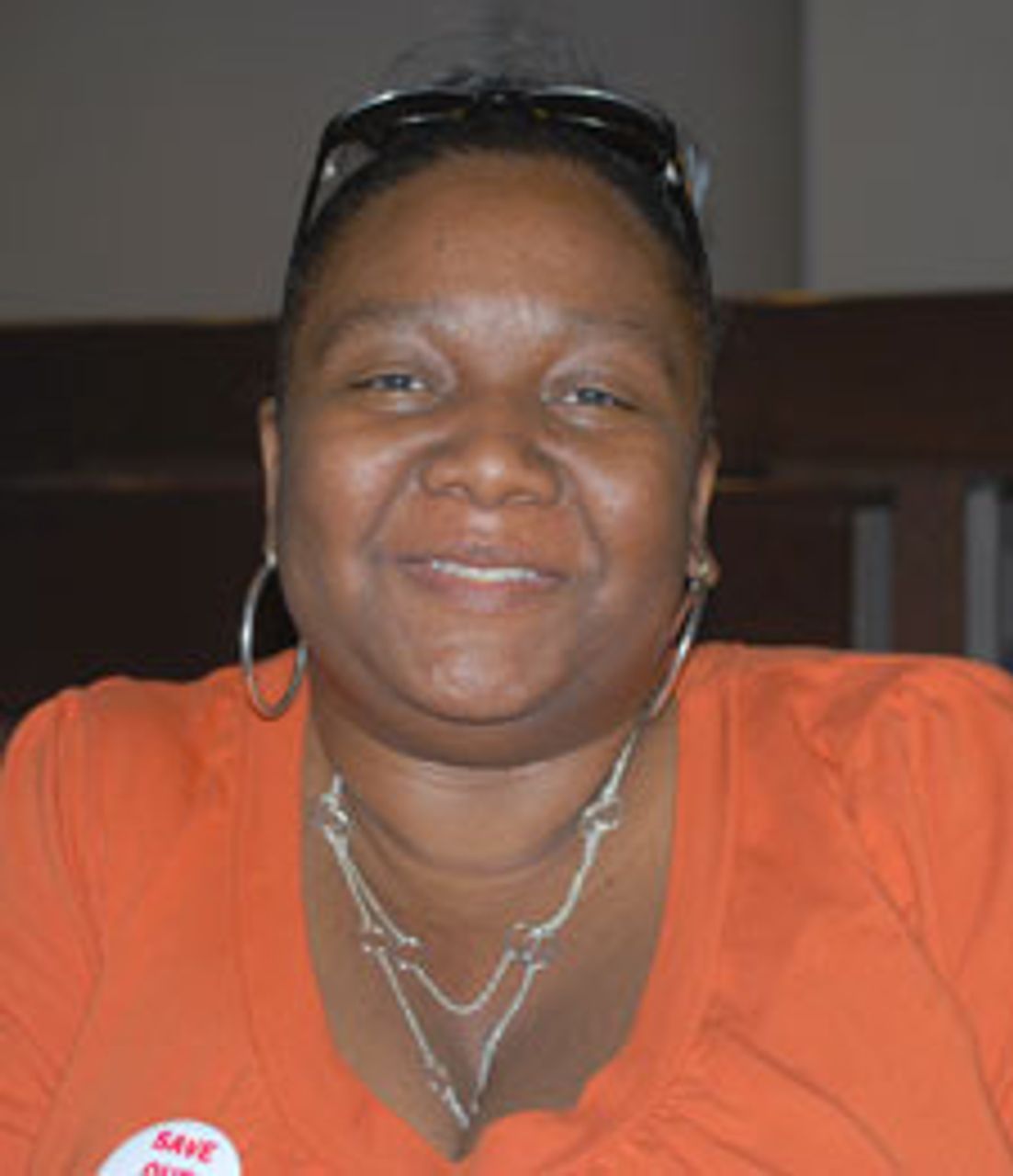 Tracy Wiggins
Tracy WigginsTracy Wiggins, AFSCME Local 1526, has worked for 21 years as a library assistant, 20 of them at the Parker Hill Branch in Roxbury. The WSWS spoke to her at a meeting in downtown Boston on Wednesday protesting the closures.
“There are a lot of people in the different communities that are going to be affected. It’s not just the four branches that are closing, but services will be affected in all the community branches. Washington Village is a safe haven for children, somewhere they can go to be safe.
“We really need to stand together, all of the branches, against the cuts. There are so many teenagers, kids that are being cut out of services. Community centers are closing, or shutting some of their doors. They’re short-funded, there’s no after-school programs for any of the kids to go to. It’s going to affect a lot of people.”
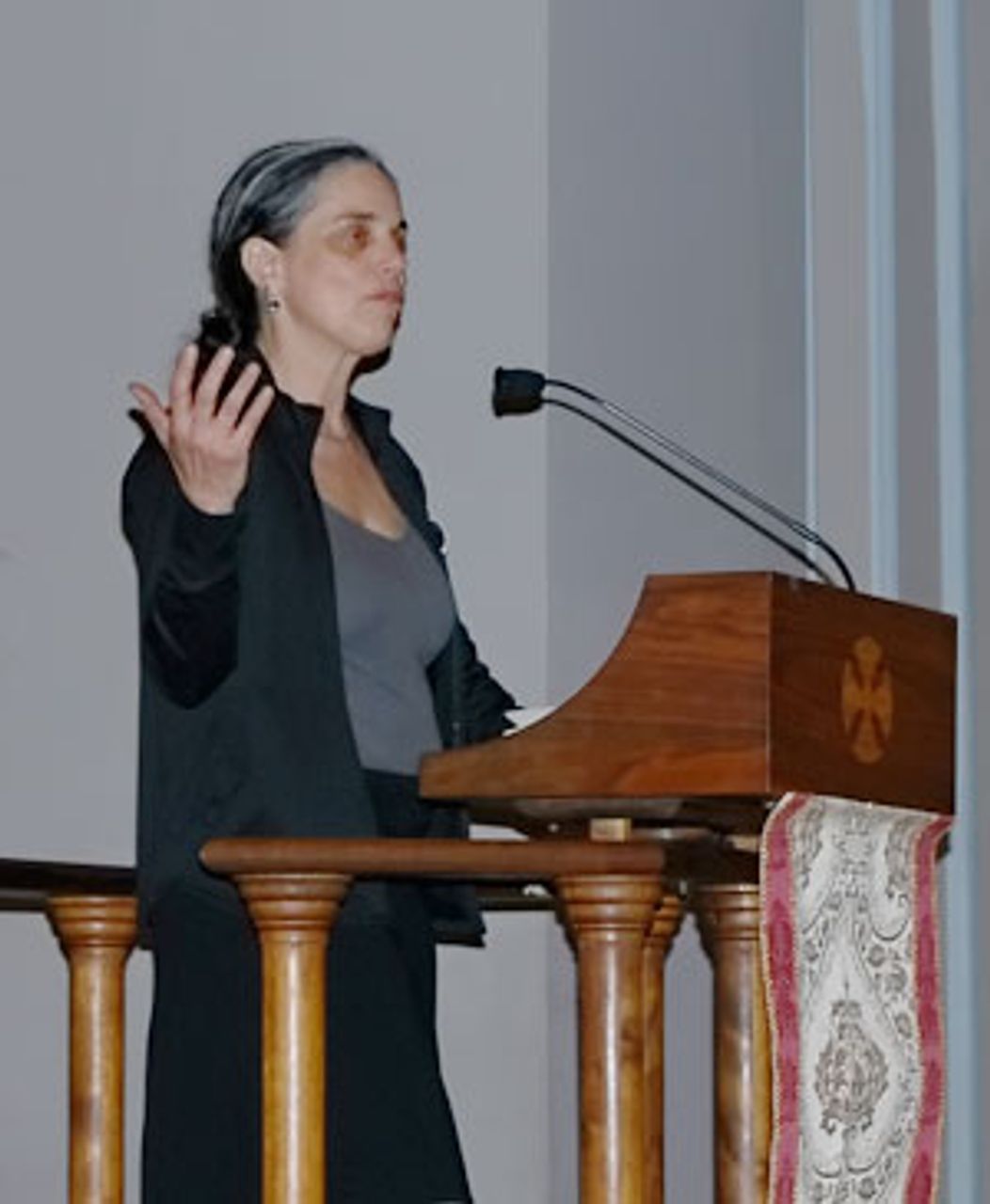 Norah Dooley
Norah DooleyNorah Dooley, a professional storyteller from Brookline, Mass., spoke at the meeting on Wednesday. “I’m a storyteller,” she said, “and as you know, other storytelling organizations come and we tell stories in your libraries.”
“It’s one of the few last open free spaces in this city. It is very important to have public spaces that are dedicated to human learning and conversation without the exchange of money.
“As a storyteller, as an author, as a mother of four children, we absolutely lived in the library,” Norah said. She commented on BPL President Amy Ryan’s plan for the system and how the trustees were utilizing data to decide which branches to close.
“Well data doesn’t tell the true story at all,” she said. “People do. The true story of going to the library, the portal to human knowledge. There is a human being who talks to you. We don’t need less librarians and more computers. You need more librarians, more staff, more people.”
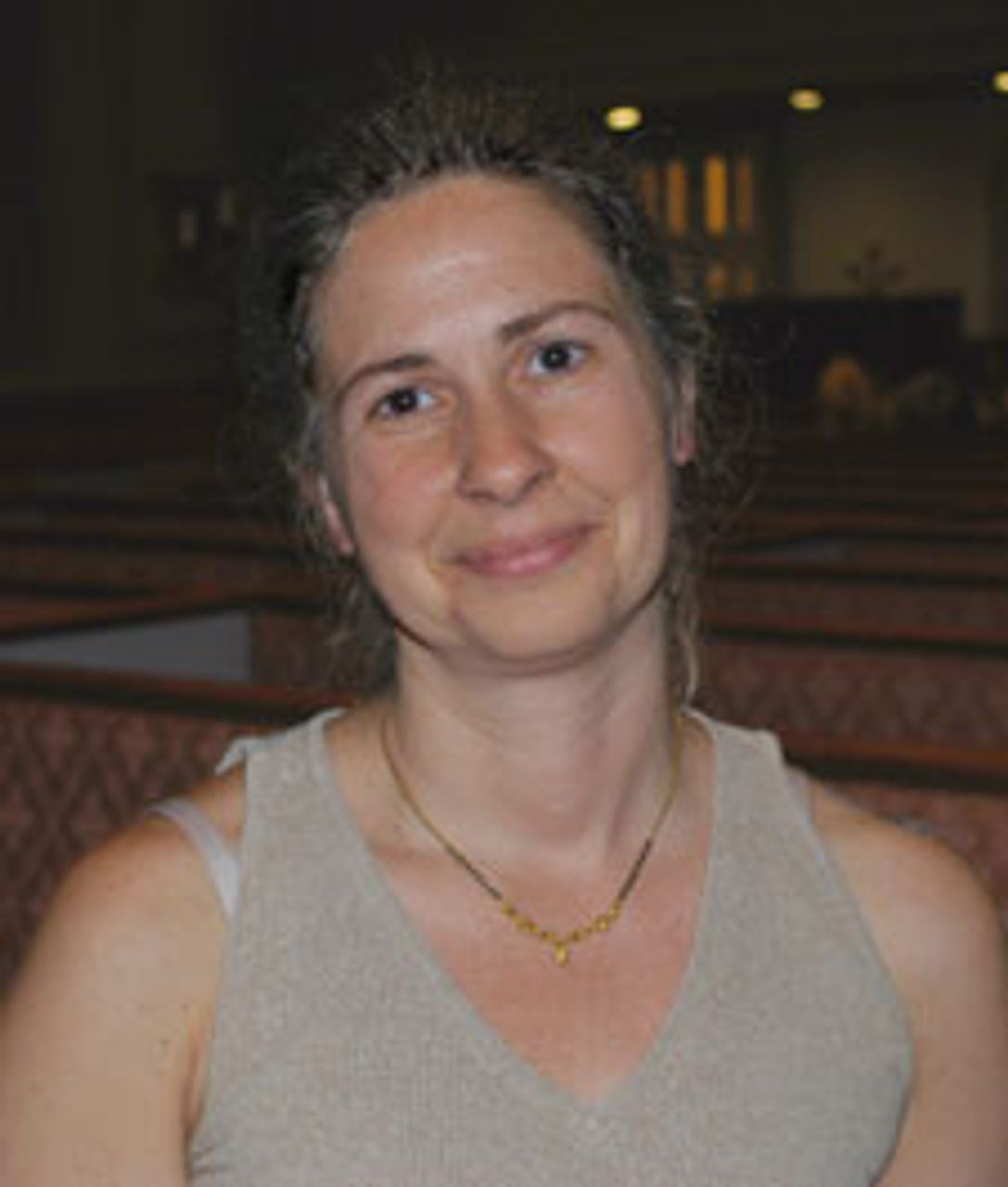 Maria Rodrigues
Maria RodriguesMaria Rodrigues lives in the area of the Faneuil branch in Brighton’s Oak Square, which is slated for closure.
“We are in a very disastrous situation because our library sits in a community that is threatened from all corners,” she said, “There is a church and a parochial school that were closed four or five years ago, and they are adjacent to the library.
“We are in a situation where there are universities, both Harvard and Boston College, expanding and buying property and pushing the residents out. So for the last five years, we’re in a community where residents really don’t know, they cannot count on services; they’re being abandoned. And the library has remained throughout this the anchor of the community.
“Democracy is about participation, it’s about community meetings. It’s about the exchange of dialogue. We’re not fighting over $3 million. There’s a different agenda that’s being put forward. The agenda is, President Ryan’s got her career ahead of her, she wants to make her name. Whatever the vision is, it’s not about the $3 million, this is peanuts.”
